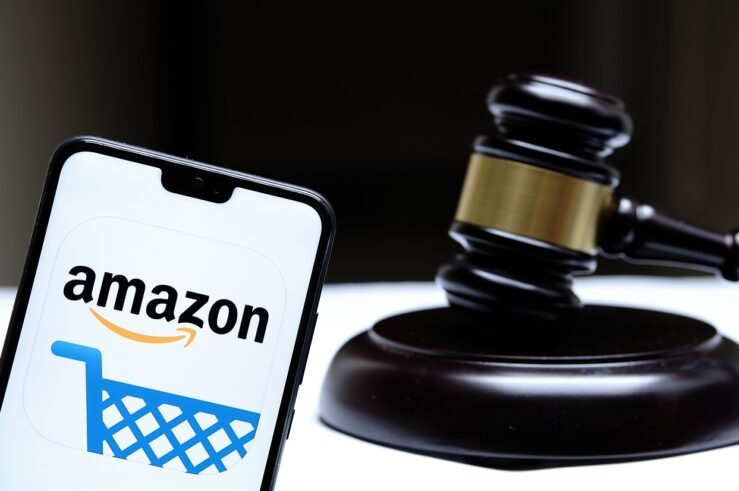Showing results for: “premium natural and organic”
The Broken Promises of Europe’s Digital Regulation
If you live in Europe, you may have noticed issues with some familiar online services. From consent forms to reduced functionality and new fees, there is a sense that platforms like Amazon, Google, Meta, and Apple are changing the way they do business. Many of these changes are the result of a new European regulation ... The Broken Promises of Europe’s Digital Regulation
Shining the Light of Economics on the Google Case
The U.S. Justice Department has presented its evidence in the antitrust case alleging that Google unlawfully maintained a monopoly over “general search services” by “lock[ing] up distribution channels” through “exclusionary agreements” with makers and marketers of devices. Google’s agreements with Apple, for example, have made its search engine the default in Apple’s Safari browser. The ... Shining the Light of Economics on the Google Case
FTC’s Amazon Complaint: Perhaps the Greatest Affront to Consumer and Producer Welfare in Antitrust History
“Seldom in the history of U.S. antitrust law has one case had the potential to do so much good [HARM] for so many people.” – Federal Trade Commission (FTC) Bureau of Competition Deputy Director John Newman, quoted in a Sept. 26 press release announcing the FTC’s lawsuit against Amazon (correction IN ALL CAPS is mine) ... FTC’s Amazon Complaint: Perhaps the Greatest Affront to Consumer and Producer Welfare in Antitrust History
Online Display Advertising: What’s the relevant market?
Digital advertising is the economic backbone of the Internet. It allows websites and apps to monetize their userbase without having to charge them fees, while the emergence of targeted ads allows this to be accomplished affordably and with less wasted time wasted. This advertising is facilitated by intermediaries using the “adtech stack,” through which advertisers ... Online Display Advertising: What’s the relevant market?
Facebook and the Pros and Cons of Ex Post Merger Reviews
The Federal Trade Commission and 46 state attorneys general (along with the District of Columbia and the Territory of Guam) filed their long-awaited complaints against Facebook Dec. 9. The crux of the arguments in both lawsuits is that Facebook pursued a series of acquisitions over the past decade that aimed to cement its prominent position ... Facebook and the Pros and Cons of Ex Post Merger Reviews
That startup investors’ letter on net neutrality is a revealing look at what the debate is really about
Last week a group of startup investors wrote a letter to protest what they assume FCC Chairman Tom Wheeler’s proposed, revised Open Internet NPRM will say. Bear in mind that an NPRM is a proposal, not a final rule, and its issuance starts a public comment period. Bear in mind, as well, that the proposal ... That startup investors’ letter on net neutrality is a revealing look at what the debate is really about
Can Experts Structure Markets? Don’t Count On It.
Complexity need not follow size. A star is huge but mostly homogenous. “It’s core is so hot,” explains Martin Rees, “that no chemicals can exist (complex molecules get torn apart); it is basically an amorphous gas of atomic nuclei and electrons.” Nor does complexity always arise from remoteness of space or time. Celestial gyrations can be ... Can Experts Structure Markets? Don’t Count On It.
Breaking Up: “It’s Not You, It’s Me”, “Maybe We Should See Other People” and “with or without You”
[This post is the second in an ongoing symposium on “Should We Break Up Big Tech?” that will feature analysis and opinion from various perspectives.] [This post is authored by Philip Marsden, Bank of England & College of Europe, IG/Twitter: @competition_flaneur] Since the release of our Furman Report, I have been blessed with an uptick in #antitrusttourism. ... Breaking Up: “It’s Not You, It’s Me”, “Maybe We Should See Other People” and “with or without You”
Separation without a Breakup
[This post is the fourth in an ongoing symposium on “Should We Break Up Big Tech?“that features analysis and opinion from various perspectives.] [This post is authored by Pallavi Guniganti, editor of Global Competition Review.] Start with the assumption that there is a problem The European Commission and Austria’s Federal Competition Authority are investigating Amazon ... Separation without a Breakup
Rebuilding Trust in Coronaworld
Governments are beginning to lift the lockdowns they imposed to slow the spread of COVID-19. That is a good thing. But simply lifting the restrictions won’t immediately take us back to normality. For that to happen requires a massive investment in mechanisms that will rebuild trust. Prior to COVID-19, people implicitly trusted that travelling on ... Rebuilding Trust in Coronaworld
Why the Federal Government’s Antitrust Case Against Google Should—and Likely Will—Fail
On October 20, 2020, the U.S. Department of Justice (DOJ) and eleven states with Republican attorneys general sued Google for monopolizing and attempting to monopolize the markets for general internet search services, search advertising, and “general search text” advertising (i.e., ads that resemble search results). Last week, California joined the lawsuit, making it a bipartisan ... Why the Federal Government’s Antitrust Case Against Google Should—and Likely Will—Fail
The DOJ’s Antitrust Case Against Google: A Tough Slog, but Maybe an Intriguing Possibility?
The U.S. Department of Justice’s (DOJ) antitrust case against Google, which was filed in October 2020, will be a tough slog.[1] It is an alleged monopolization (Sherman Act, Sec. 2) case; and monopolization cases are always a tough slog. In this brief essay I will lay out some of the issues in the case and raise ... The DOJ’s Antitrust Case Against Google: A Tough Slog, but Maybe an Intriguing Possibility?










